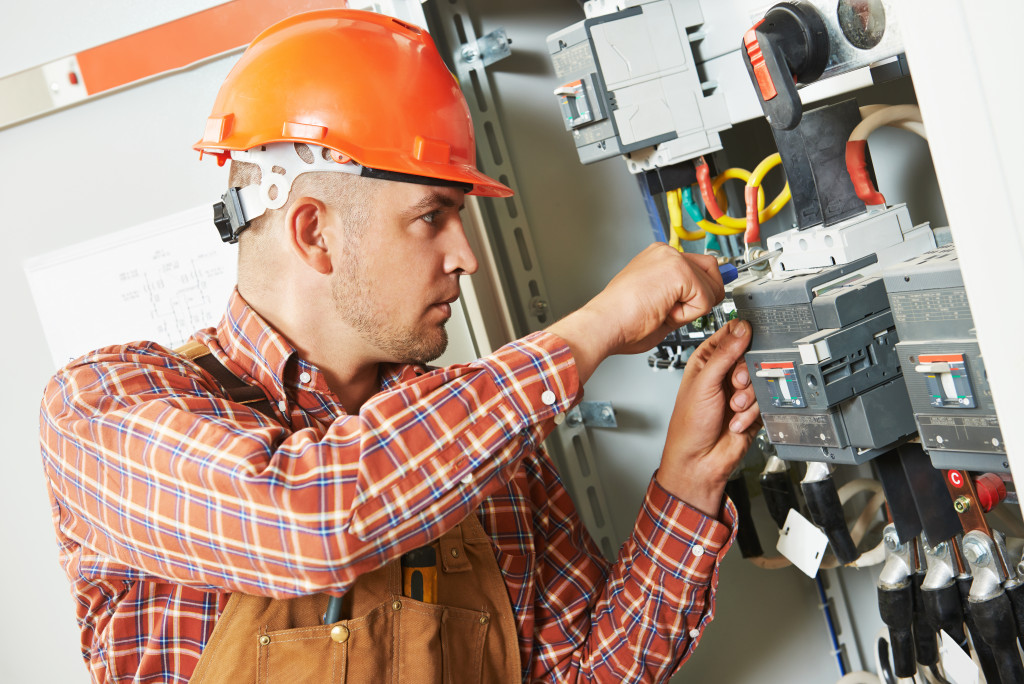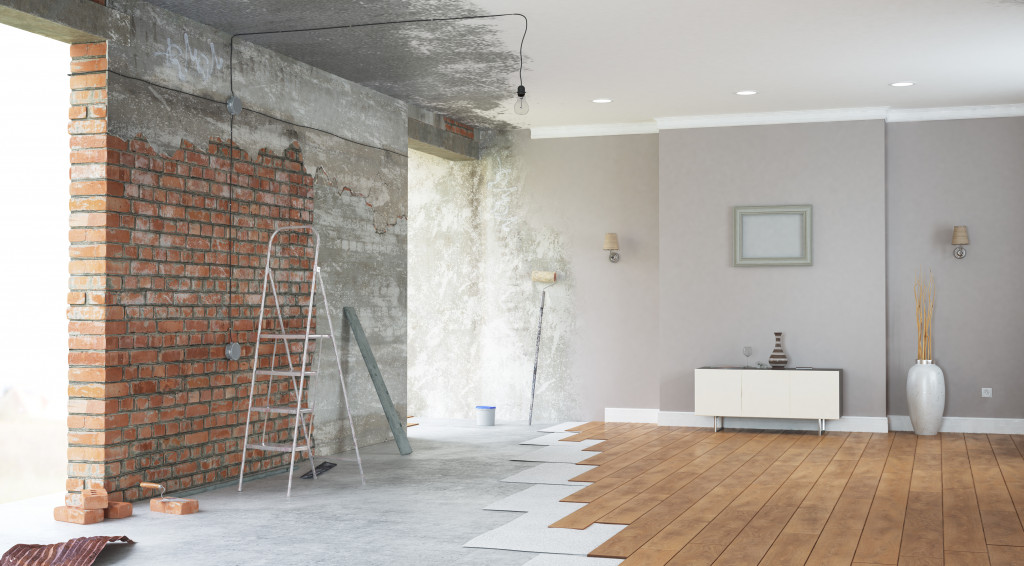Older homes have a lot of character that is often hard to find in newer homes. They also tend to be more affordable than newer homes. Plus, many people like renovating an older home and making it their own.
When it comes to renovating an older home, there are a lot of things to keep in mind. You don’t want to make costly mistakes that will cost you more in the long run. To avoid them, you must check the property for anything that can hinder your renovation project. So here are some tips to help you get started.
1. Check for asbestos
The first thing you need to do is to check the property for asbestos. This is a dangerous substance that can cause serious health problems if inhaled. If you find any asbestos in the property, you need to hire a professional to remove it before starting the renovation. Only a professional knows how to remove and dispose of asbestos safely.
Asbestos can be found in many different parts of the house, such as in the insulation, flooring, and even the paint. Most homes built before the 1980s likely have asbestos, so it’s essential to be extra cautious when dealing with an older property.
2. Check for lead paint
Many homes built before 1978 have lead paint in them. Lead paint can harm your health, especially if you’re pregnant or have young children. If you plan on doing any renovations that involve sanding or scraping, you need to test the paint for lead first. You don’t want to risk exposure to lead paint dust.
If you find lead paint on the property, you need to hire a professional to remove it. The removal process involves using special equipment and procedures to avoid creating lead dust. They will also need to dispose of the lead paint properly.
3. Check for plumbing problems
Before making any changes to the plumbing, you need to check for any problems. This is especially important if you’re planning on doing a major renovation, such as a kitchen or bathroom remodel. If there are any leaks or blockages, they need to be fixed before you start the renovation. Otherwise, you could end up with a flooded home.
You also need to check the boiler if the house has one. This is to ensure that it’s in good working condition and that there aren’t any leaks. A boiler can be very dangerous if it’s not working correctly. It’s best to hire professional boiler services to check the machine and ensure it’s safe to use.

4. Check for electrical problems
Older homes often have outdated electrical systems that need to be updated. Older electrical wiring can be a fire hazard. Plus, if you’re planning on adding any new appliances or lighting fixtures, you need to ensure that the electrical system can handle the additional load.
If you’re not sure how to check the electrical system, you can hire an electrician to do it for you. They can tell you if the system needs to be updated and can even do the work for you. Never try to do electrical work unless you know what you’re doing.
5. Check for structural problems
Due to wear and tear, many older homes have structural problems. These need to be fixed before you start any renovation work. Otherwise, the renovations could end up making the situation worse.
The most common structural problems are foundation issues, such as cracks or settlements. These need to be repaired by a professional before you start the renovation. Other structural problems include roof leaks, termite damage, and water damage.
Depending on the extent of the damage, you may need to hire a professional to fix the problem. Otherwise, you could end up in an unsafe home. If you’re not sure how to fix the problem, you can always consult with a structural engineer.
6. Check for zoning restrictions
Before starting any renovation work, you need to check for zoning restrictions. This is to ensure you’re not violating any laws or ordinances. Zoning restrictions can vary depending on the area, so it’s best to check with the local zoning office.
They will be able to tell you what type of work is allowed and what kind of work needs to be approved. For example, some areas have strict laws about adding new structures, such as an addition to the home. In most cases, you will need to get a permit before starting any work. The permit process can be time-consuming, so starting early is best.
Renovating an older home can be a challenging but rewarding experience. Before starting any work, you need to research and check for any potential problems. This will help you avoid costly mistakes and ensure that your renovation goes smoothly. Always consult with professionals when necessary to ensure that the work is done correctly.

